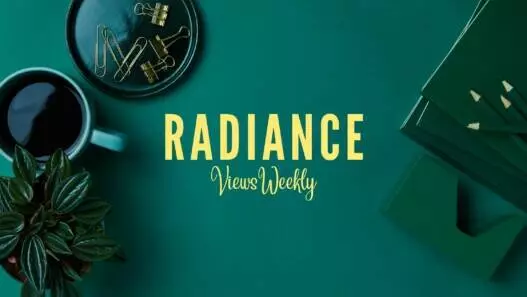Just screaming ‘colonial mindset’ would not serve any purpose. We missed the best opportunity to silence the racist Britons forever, observesSoroor Ahmed
Even if vision returns to my eyes (which I gradually started losing about two decadesback) I would not like to watch the BBC documentary India: The Modi Question. This doesnot mean that others – especially the youngsters – should not see it. The reason for this isvery simple. For a fairly grown-up person like me there is nothing much left to know.
As Gujarat riots of 2002 was the first major communal earthquake to rock India in thepost-private television channels age, many of the happenings were captured in the cameraand reported in great details. While the news of the fire in S-6 coach of Muzaffarpur-Ahmedabad Sabarmati Express (via Ayodhya) train could be reported within an hour of theincident, the subsequent attacks on Muslims and largescale riotings, killings, arson andlooting were telecast almost live for many days. Neither the 1984 anti-Sikh pogrom, northe Bhagalpur riots of 1989, nor the 1992Babri Masjid demolition and subsequent violencein Surat and Mumbai could be telecast live because it was still the era of Doordarshan andAll India Radio. The razing down of Babri Masjid could get relatively larger coverage asit took place before the presence of a sizeable number of national and internationalmediapersons -many of them armed with latest cameras and other gadgets of that time. So,in the matter of a few days cassette recorders were available in the market throughoutIndia, and later abroad, too.
HOW GUJARAT 2002 WAS DIFFERENT
But the Gujarat riots of 21st century was somewhat different. By then the cable televisionchannels were 10 years old and had penetrated into the deep hinterland of the country.So, whatever had happened then got due attention on televisions. As a photograph is wortha thousand words, the detail non-stop picturisation of the whole occurrences had a muchstronger impact than the newspaper and magazine reporting of the previous years. Now thereis no scope for denial of whatever had taken place.
Some of the shots were shown so many times in the following years that they left theirdeep mark in the mind of viewers. The legal battles and other such related developmentswere time to time highlighted by the electronic channels as well as print media.
CURIOSITY AMONG YOUTHS
That is why the documentary evoked more curiosity among the upcoming generation, that isthose who were born after 2002 riots or who were very young at that time. So, when a fewstudents’ outfits announced their plan to screen the BBC documentary, it evoked a bigresponse. The authority failed to gauge the mood of the youths and in the process bungled.It would be wrong to conclude that only students belonging to the Left parties or theCongress were interested in watching India: The Modi Question. Some of them who turned upto watch may have soft corner for the BJP or PM, yet they wanted to have a look into thedocumentary. By removing it from the social media the powers that be only increased theircuriosity.
Ironically, the government, by mishandling the situation, only exposed its weaknesses andnervousness. Now privately and even publicly many in the ruling party are of the view thatthe whole episode could have been handled in a better way by ignoring the screening of thedocumentary in the distant United Kingdom.
INTERNATIONAL MEDIA COVERAGE
The police action against the students got international media coverage. After all, whythe government of India, which claims to be Vishwaguru (global leader), got panicky by thescreening of just a documentary.
If the documentary was really made with ‘the colonial mindset’, the authorities in India should have encouraged someone from the journalistic fraternity to make a film on theatrocities and other crimes committed by the British imperialists between 1757, that is,Battle of Plassey, and 1947, that is Independence of India and the role the Raj played inthe partition of the sub-continent. They de-industrialised India in 19th century, thoughtill early the 18th century, that is late Mughal era, it was the most powerful economy of theworld. But after that crores were left to starve to death in several man-made famines inthis period. The last one to ravage India was in early 1940s, that is the at the height ofWorld War-II. Some four to five million perished.
Lakhs of Indians were forcibly transported to work as slaves in far off countries. Theywere given the name of indentured labours. Millions of soldiers were thrown into the twoWorld Wars in Europe, Africa and West Asia. Hundreds of thousands of them never returned– they died in the battleground or because of Spanish Flu (at the fag end of World War-I).All this was done to protect and consolidate the British imperialism.
There is no dearth of television personalities who can undertake this job. After all manyof our anchors and reporters are busy digging up old wounds and increasing polarisationwithin the society. Then why not expose the British, who are still troubling us.
COLONIAL MINDSET NEEDS TO BE NEUTRALISED
Such an exercise would have helped the upcoming generation to understand the sinister designof the European colonisers. We are still to produce any such authentic documentary on thisperiod of 190 years. Just screaming ‘colonial mindset’ would not serve any purpose. Wemissed the best opportunity to silence the racist Britons forever.
Similarly, in spite of being the world leader, we allowed our Sensex to tumble down justbecause a US-based research body came out with a damaging report on Adani, our number oneindustrialist. Instead, one of our own financial newspapers or channels should have comeout with the irregularities and misdeeds of Jeff Bezos, Bill Gates, Mark Zuckerberg, ElonMusk and hordes of others. They would all have collapsed.
Adani himself could have initiated such a counter-offensive. He is now in possession of avery prominent television empire.
No doubt, we have become Vishwaguru, but we have yet to learn the lesson of reactingmaturely.


